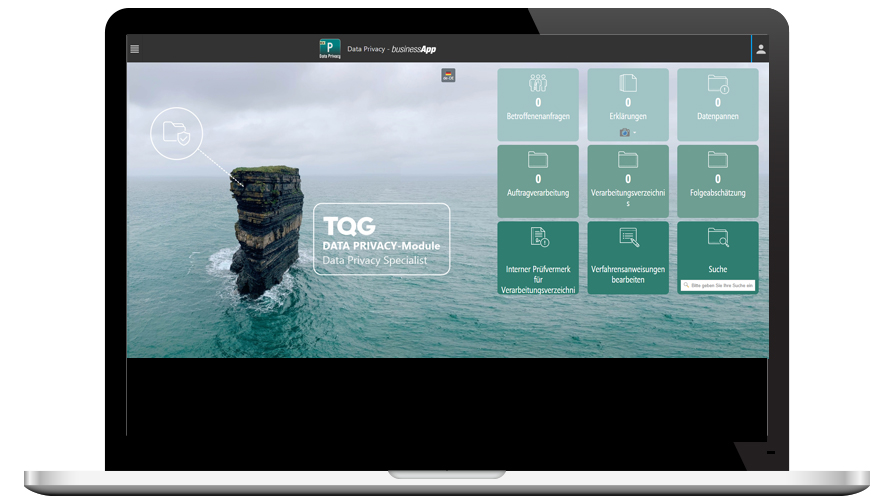Data Protection Software
Data protection management system to ensure compliance with regulations (e.g. DSGVO)
Data plays a major role in every area of life. They are valuable and must therefore be protected. Data protection in general describes the protection against the improper processing of personal data and the protection of the right to informational self-determination. This protection is required when responsible bodies process personal data within the meaning of the General Data Protection Regulation.
Data protection is an area of law with a very high priority, which must be ensured by the company management. For everyone and every company, the key question in data protection is: Am I allowed to collect and process this personal data?

Data protection is abstract and difficult to grasp. Personal data can be passed on and still be used at the same time. The right to informational self-determination must also be taken into account. In Europe, the General Data Protection Regulation (GDPR) determines the scope and measures to be taken to ensure secure handling of personal data. Companies must be able to demonstrate compliance with the principles of the GDPR. In return, the regulation rewards risk-minimizing measures taken by companies at various points.
Different aspects, interpretations and focal points characterize data protection and provide many interesting, informative and insightful contributions for the DiALOG magazine.
The principles of the EU GDPR
The GDPR is intended to ensure uniform and strong data protection in the EU without jeopardising the free movement of data within the EU. As a result, the regulation sets out principles that must be adhered to.These are:
- Prohibition subject to authorisation: The use of personal data is only permitted if a legal provision or the consent of the data subject allows this.
- Data minimisation: No more data may be collected than is absolutely necessary.
- Purpose limitation: Data may not be processed for purposes other than those originally specified.
- Necessity: Personal data may only be collected to the extent and for the duration required for the purposes.
- Data security: Technical and organisational measures must ensure compliance with data protection regulations.
- Direct collection: Personal data must generally be collected from the data subject and only in exceptional cases without the data subject's co-operation.
- Principle of transparency: Obligation to provide information on the purpose for which data is collected.
Articles on Data Protection

There are no excuses - let's tackle digitization!
"Once upon a time...there was the fairy tale of Everybody, Somebody, Somebody and Nobody. It was about getting an important job done and Everybody was sure that Somebody would take care of it. Somebody could have done it, but Nobody did it.

Close listening recommended
An EU directive requires companies to implement a system for receiving information about violations. Many SMEs have already realized that a whistleblower system actually helps to increase the company's success. Now entrepreneurs, managing directors and executives...

The new seal of approval for data protection
The decisive cornerstone for the emergence of CertNex GmbH was laid by the legislator with Articles 42 and 43 of the GDPR, which deal with the introduction of data protection-specific accreditation and certification procedures.

Data protection - stay away from me with that ...
This sentence is probably the first thing that comes to mind when most people hear the word "data protection". The reason for this thought is predominantly that many people assume that they themselves are not affected by data protection (law).

GDPR - Respectful handling or scaremongering
On 25.05.2018, the new EU Data Protection Regulation (EU GDPR) came into force. Hundreds of articles have already been written about it. Everyone is talking about it, some have already taken action, others are letting it slide. Rarely has the pressure of the threat of fines been...
